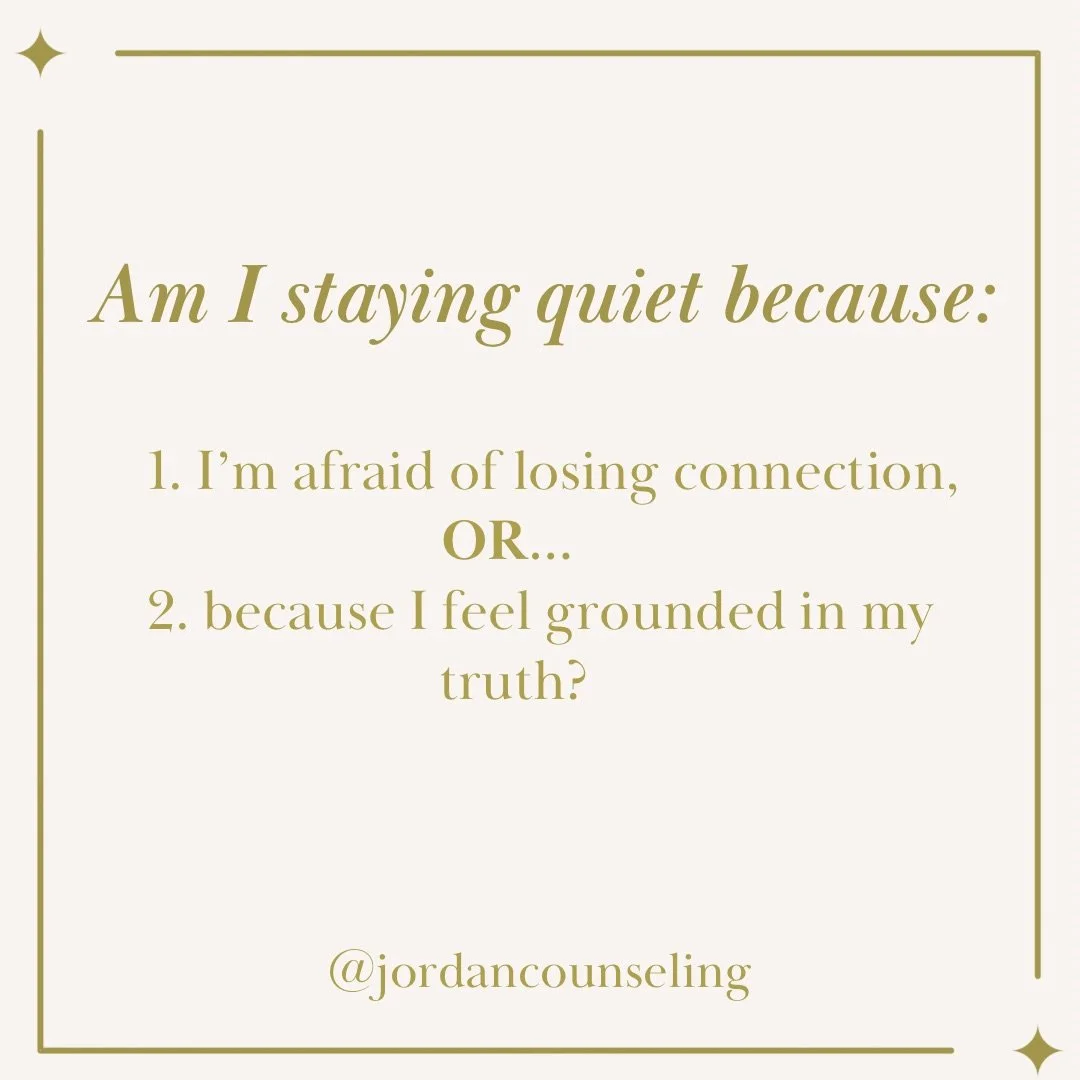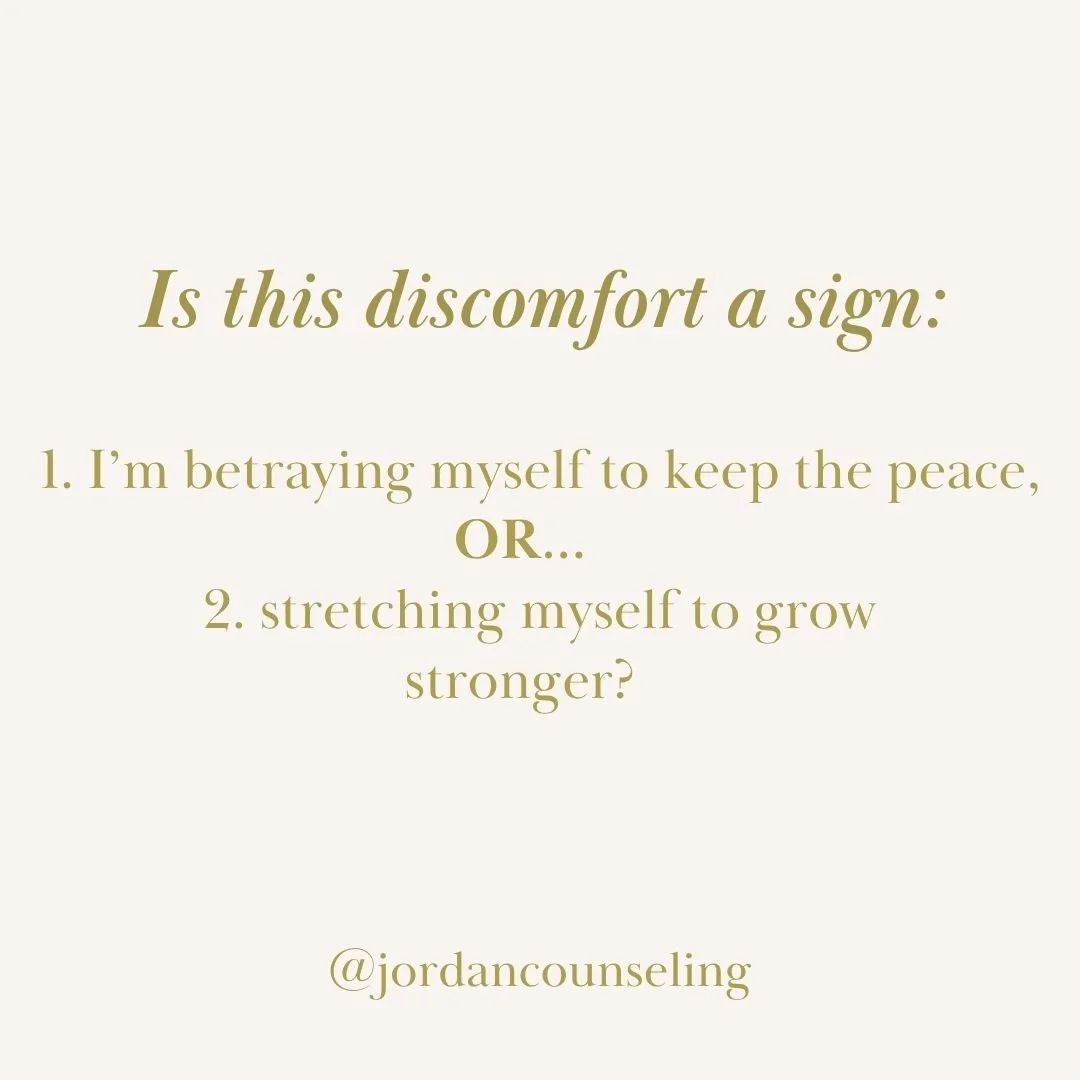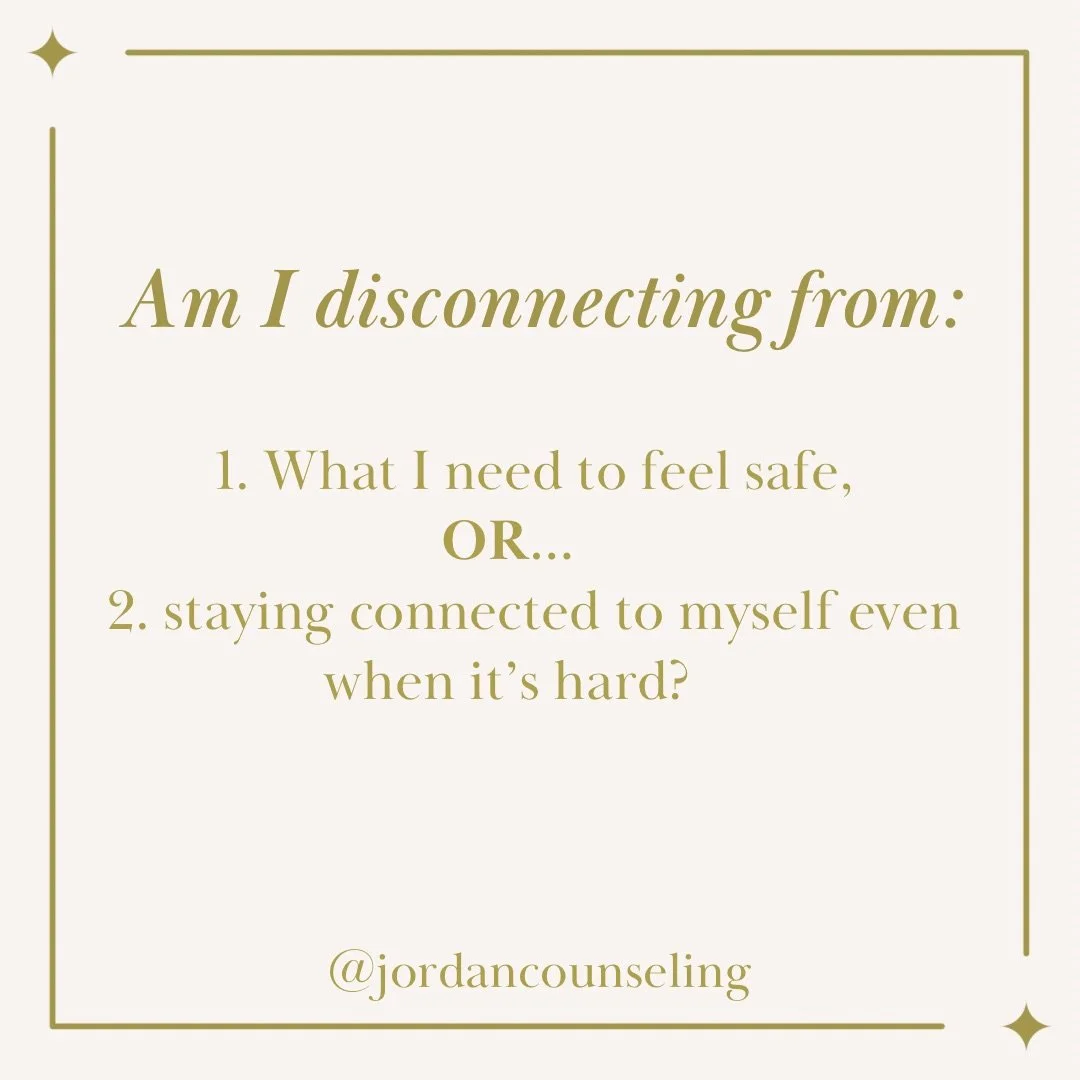Live in Alignment or Play it Safe? The Cost of Integrity Over Comfort
There’s a common belief in modern self-improvement culture that alignment should feel calm, easy, and peaceful. We hear and see:
“If it feels hard, it’s not right or for you.”
“If it’s meant for you, it will flow effortlessly.”
“The right relationship will be the one that’s easy.”
But honestly, sometimes what’s meant for us isn’t easy at all.
Often alignment asks us to grow in ways we’ve been avoiding. It can feel terrifying, heavy with grief, or deeply uncomfortable - not because it’s wrong, but because it’s stretching us into who we’re meant to become.
And while we often equate discomfort with misalignment, the truth is: not everything that feels distressing is bad for us. Some of the hardest things we do are the most aligned - because they require us to hold steady with our truth, even when it may cause discomfort.
What Does Living in Alignment Actually Mean?
Living in alignment isn’t about floating through life without friction. It’s about:
Acting in accordance with our values, even when it costs us approval or comfort.
Honoring our needs and limits, even when others don’t understand.
Choosing truth over convenience, integrity over temporarily relief.
Alignment is when our actions match what we know to be true for ourselves, it’s the confidence we have to not just trust our own choices, but also to trust our capacity to handle the outcome. But getting there, and staying rooted once we find that self-security and trust, requires more than practicing affirmations and hoping they stick. It requires courage, discernment, and radical honesty, and sometimes – that feels like shit.
Alignment Doesn’t Always Feel Good
We often think that living in alignment, or in our ‘values’, should feel peaceful or empowering right away. But the reality is, alignment can feel really uncomfortable - especially when it asks us to act differently than we’re used to, or requires us to hold multiple conflicting thoughts and feelings at the same time.
Imagine speaking up in a relationship where you’ve always kept quiet.
It might feel empowering - but it also may feel:
Anxious, because we’re worried about how they’ll react/respond.
Heavy, because we finally see just how off-balance things have been.
Unsettling, because this isn’t how we’ve shown up before and we can’t predict the outcome.
Or maybe we consider leaving the job that’s been draining the life out of us.
Sure, there’s relief in walking away, but there’s also fear - fear of what’s next, fear of losing our sense of identity, fear of disappointing people who thought we’d “made it” or “it was a great fit”…or who flat just don’t think it’s the right decision for us. But we can survive two truths at one time: we can feel terrified and relieved, unsure and clear - and still choose to do the hard, but necessary thing.
People-Pleasing, Self-Abandonment, and Distress Tolerance
Sometimes, what looks like “ease” or “peace” isn’t actually alignment. It’s avoidance, or even people-pleasing or self-abandonment in disguise. Self-abandonment happens when we disconnect from our own needs, feelings, or truths to keep the peace, avoid conflict, or maintain connection.
We might ignore our needs, stay silent, or say yes when we mean no.
Not because we’re regulated or strong - but because we’re afraid. Afraid of rejection, afraid of conflict, afraid of losing connection, care, or love.
People-pleasing and self-abandonment aren’t about being kind or easygoing; they’re fed through fear. They’re the ways we trade our authenticity for acceptance, believing it’s safer to disconnect from ourselves than risk disconnection from others. And the closer we get away from the core of ourselves, the more confused and disconnected our internal world starts to feel.
Distress tolerance is rooted in self-connection. It’s the capacity to feel discomfort without abandoning ourselves. It allows us to stay present with our truth, confidently set boundaries, and act with integrity - even when our nervous system wants to shut down or appease to stay safe.
One is rooted in fear and self-abandonment, it shrinks us. The other creates self-trust and resilience, building strength. Knowing the difference is everything.
Reflection Questions to Check-In:
The Reality of Integrity
Alignment isn’t a constant state of ease; it’s a consistent state of truth.
Integrity requires a lot of radical honesty - and doesn’t always feel comfortable in a world that profits from our misalignment.
When we choose alignment, we choose to live in relationship with our own truth. We might disappoint others. We might face fear, grief, anger or frustration. But we gain:
Self-trust.
Clarity.
Freedom from the internal war of pretending.
Alignment does not always feel good in the moment. But over time, it builds a life that feels true.
Discomfort is a temporary state; we have to trust our capacity to move through it.
Helpful resources associated with this topic:
🎧Podcast Suggestion: Listen to “How to Come Home to Yourself with Martha Beck” (We Can Do Hard Things, Ep. 66) for insights on reconnecting with your inner truth and choosing alignment over comfort, even when it feels scary.
📚 Book Suggestion: Read “Radical Acceptance” by Tara Brach to learn how embracing your full truth with compassion can ease the discomfort of living in alignment and build deep self-trust.
📝 Video + Tool Suggestion: This is a great conversation, but in particular at time 1:36:00 the discussion on Values Check-In is helpful for alignment:
https://www.youtube.com/watch?v=iALnyoUqL6k
...to go along with it, this is a great, practical free worksheet for this can be found on Brene Brown's website: https://brenebrown.com/resources/living-into-our-values
Reflection
If you’re feeling discomfort as you make choices aligned with your values, know this:
Discomfort doesn’t always mean you’re on the wrong path. Sometimes, it means you’re finally on the path to discover the one that feels “most right” for you.
If navigating this discomfort feels overwhelming, working with a therapist can help you build the clarity, courage, and self-trust needed to stay grounded in your truth - even when it’s hard. Reach out today:



